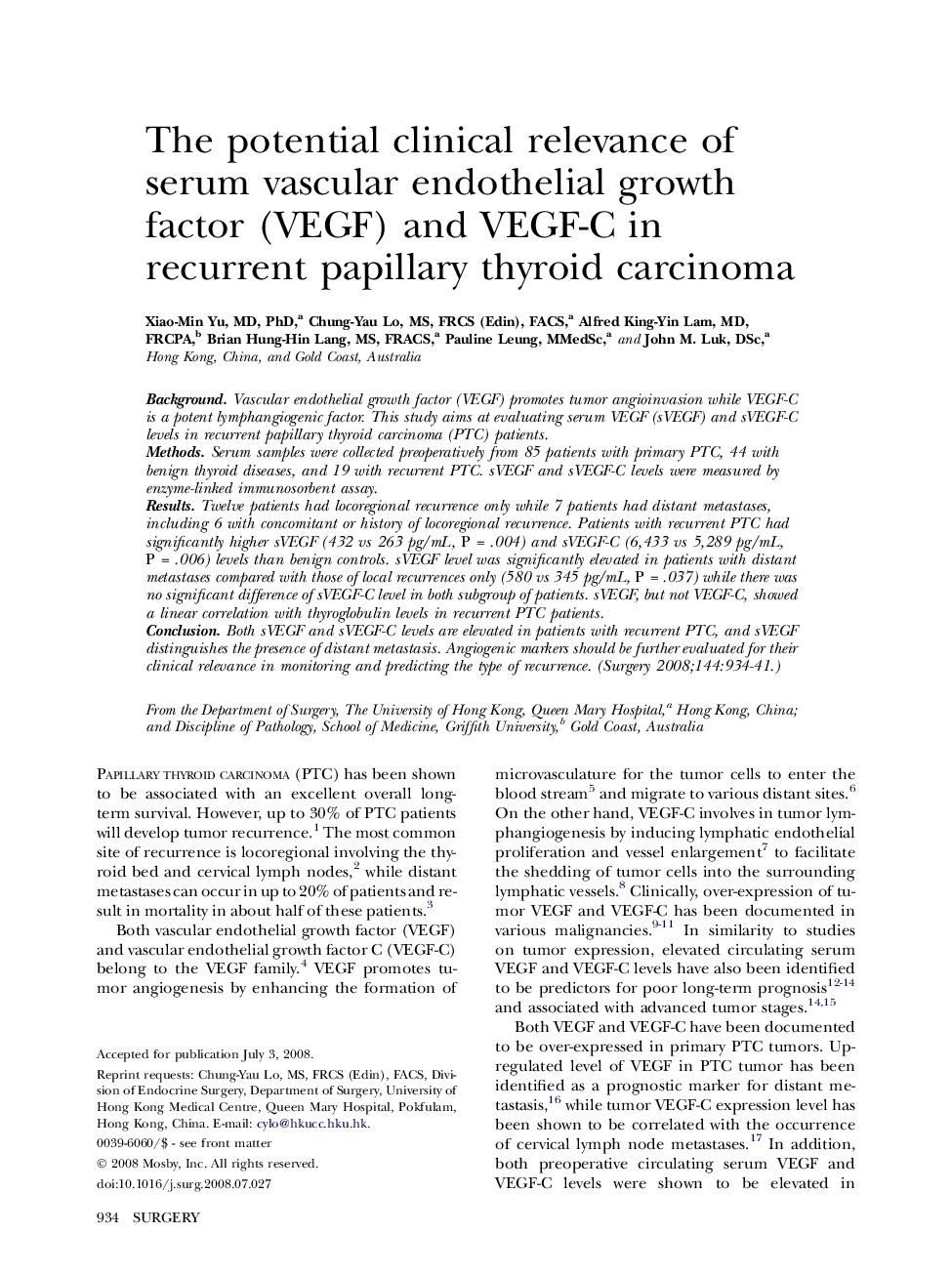| Article ID | Journal | Published Year | Pages | File Type |
|---|---|---|---|---|
| 4309320 | Surgery | 2008 | 8 Pages |
BackgroundVascular endothelial growth factor (VEGF) promotes tumor angioinvasion while VEGF-C is a potent lymphangiogenic factor. This study aims at evaluating serum VEGF (sVEGF) and sVEGF-C levels in recurrent papillary thyroid carcinoma (PTC) patients.MethodsSerum samples were collected preoperatively from 85 patients with primary PTC, 44 with benign thyroid diseases, and 19 with recurrent PTC. sVEGF and sVEGF-C levels were measured by enzyme-linked immunosorbent assay.ResultsTwelve patients had locoregional recurrence only while 7 patients had distant metastases, including 6 with concomitant or history of locoregional recurrence. Patients with recurrent PTC had significantly higher sVEGF (432 vs 263 pg/mL, P = .004) and sVEGF-C (6,433 vs 5,289 pg/mL, P = .006) levels than benign controls. sVEGF level was significantly elevated in patients with distant metastases compared with those of local recurrences only (580 vs 345 pg/mL, P = .037) while there was no significant difference of sVEGF-C level in both subgroup of patients. sVEGF, but not VEGF-C, showed a linear correlation with thyroglobulin levels in recurrent PTC patients.ConclusionBoth sVEGF and sVEGF-C levels are elevated in patients with recurrent PTC, and sVEGF distinguishes the presence of distant metastasis. Angiogenic markers should be further evaluated for their clinical relevance in monitoring and predicting the type of recurrence.
